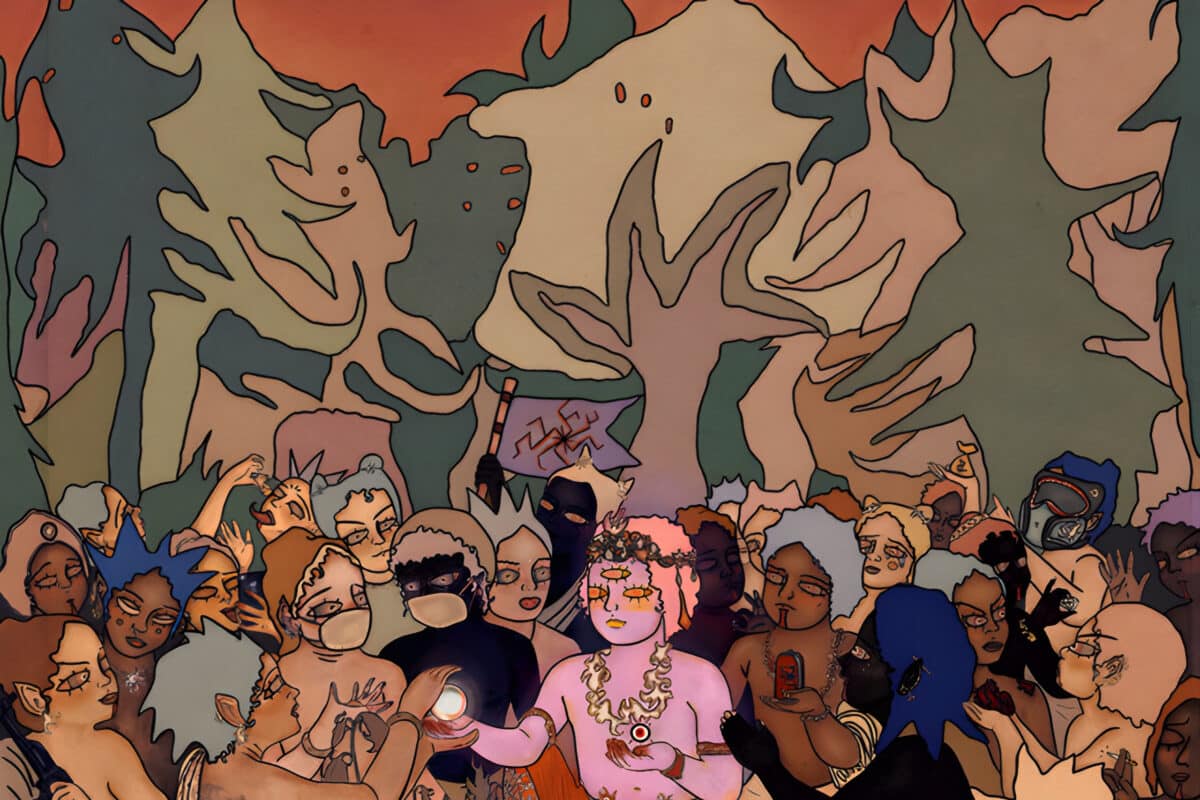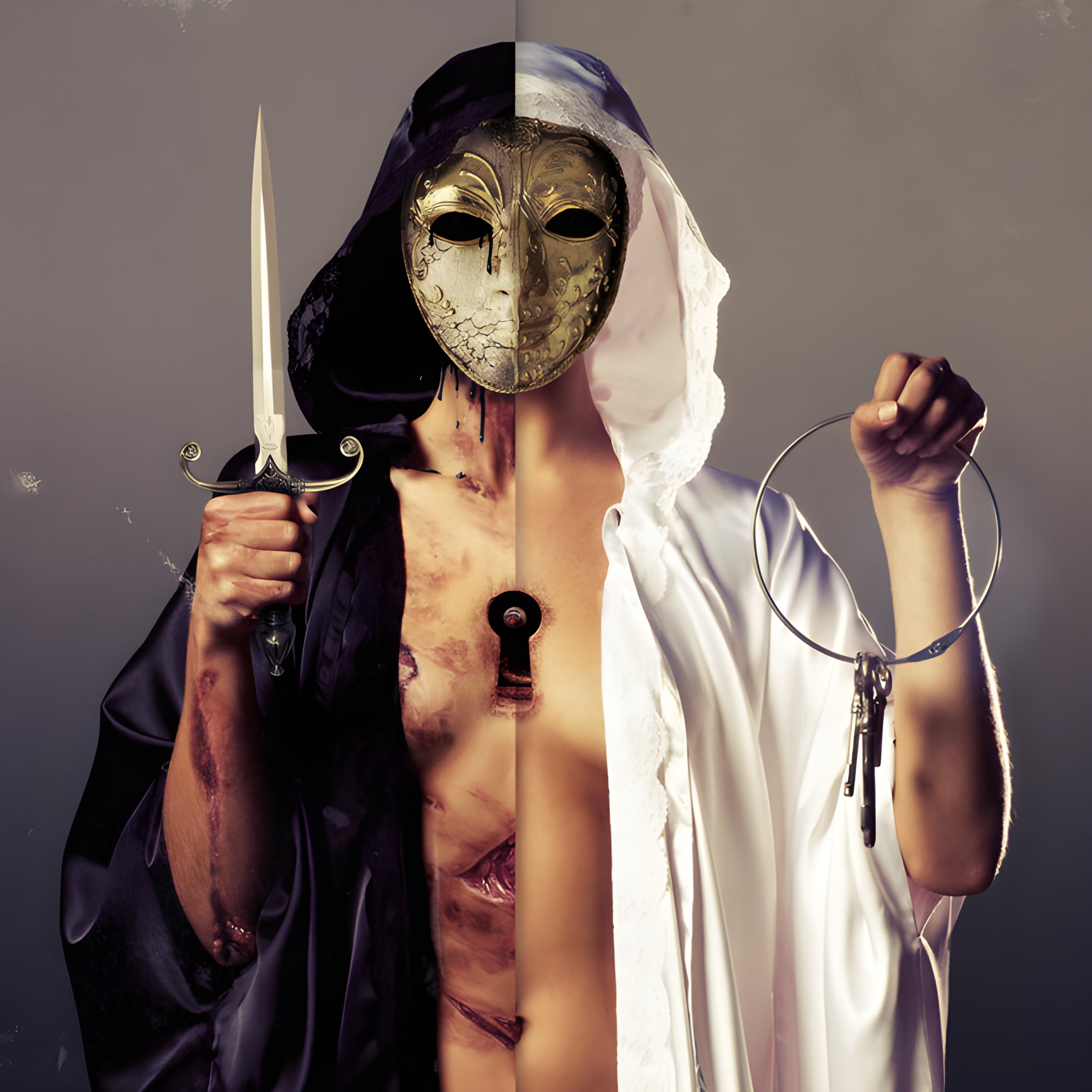Released: 2020
“Ludens” by Bring Me The Horizon dives headfirst into the tangled web of digital connectivity and its impact on human interaction and leadership. The song critiques the modern world’s overdependence on technology, while yearning for a new kind of leader (a Luden) to emerge from the chaos. This track doesn’t just rock the boat; it aims to flip it over.
The opening lines “Some resist the future, some refuse the past / Either way, it’s messed up if we can’t unplug the fact”, immediately throw us into the turmoil of today’s society—a world caught between the nostalgia for a simpler past and the inevitable march towards a digital future. The phrase “a world covered in cables was never wired to last” warns of the fragility of our current, tech-dependent civilization, suggesting it’s on the brink of collapse. The song doesn’t just lament our reality but also challenges it, questioning how genuine connections can be formed when even a handshake is mediated by technology.
The chorus, “I need a new leader, we need a new Luden”, is a call to arms for someone, or something, new to guide us. A Luden, inspired by the concept of Homo Ludens (playing man), suggests a leader who is adaptable, innovative, and understands the intrinsic human need for play, connection, and creativity beyond digital realms. The repeated plea throughout the song emphasizes the collective yearning for change and direction in a seemingly directionless world.
In a striking visual metaphor, “Sticks and stones may break my bones / But names can dig so many graves”, the song acknowledges the power of words and the deep scars they can leave, especially in the era of online anonymity and cyberbullying. This line starkly contrasts the old adage to highlight the severe impact that digital interaction can have on individuals. The mention of feeling secure only when being followed twists the idea of privacy and security on its head, reflecting the paradox of social media where visibility often equates to validation.
The bridge, with its frustrated outburst, “You call this a connection? You call this a connection? You call this a connection? Okay”, serves as a raw, rhetorical challenge to our modern definitions of connectivity. It’s a moment of clarity within the song, cutting through the noise to question the quality of relationships formed in a digital age, essentially asking, “Is this really the best we can do?”
Ultimately, “Ludens” doesn’t just criticize; it also invites listeners to envision a future where human connection transcends digital limitations. It’s a powerful anthem calling for a paradigm shift in how we lead, connect, and interact with each other and the world around us. By envisioning a new Luden, Bring Me The Horizon isn’t just dreaming of a new type of leader; they’re stirring the pot, hoping to inspire the creation of a world that values connection, empathy, and genuine interaction above all else.








